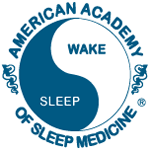 A body clock broken by alcoholism may never tick again. New research shows chronic drinking can permanently damage the genes that regulate our sleep cycle.
A body clock broken by alcoholism may never tick again. New research shows chronic drinking can permanently damage the genes that regulate our sleep cycle. It takes hard work and dedication to make a full recovery from alcoholism. It’s unclear if a full sleep recovery may ever follow.
The study was published on the website for Alcoholism: Clinical & Experimental Research. A print version will be included in the November 2010 issue of the journal.
Authors of the small study examined blood samples from 22 male patients who fit the DSM-IV criteria for alcohol dependence. Researchers compared the blood samples to a control group of 12 healthy men.
The alcohol dependence patient’s blood samples had lower baseline levels circadian clock gene expression. This means the patients have an elevated risk for sleep problems, as well as depression and cancer.
Findings show the circadian clock genes did not improve after the patients were put through early alcohol withdrawal treatment.
The findings are in line with a 2005 review by the AASM. Decades of studies show alcohol disrupts the sleep cycle. The relationship is dose dependent; frequent drinking can cause serious, long-term sleep problems.
Moderate drinking can also cause short-term sleep disruptions. Social drinkers may notice that alcohol can help them fall asleep, but they wake up feeling fatigued. Alcohol changes your sleep architecture. Time spent in restful REM sleep is replaced by deep, slow-wave sleep.
As the beer ads on television always say, if you drink, please drink responsibly. Drink in moderation and avoid using alcohol near bedtime.







No comments:
Post a Comment